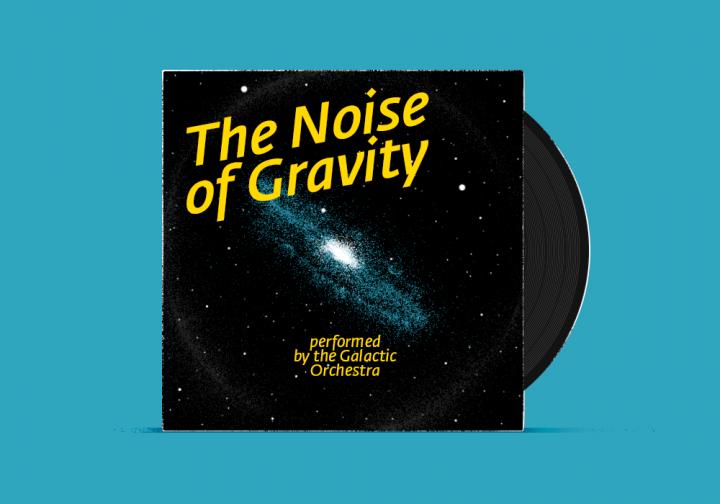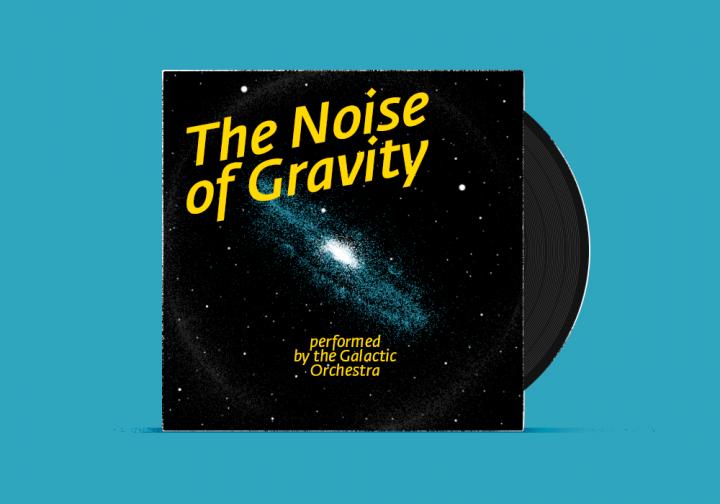
Credit: MIPT Press Office
Our Galaxy's gravitational field limits the accuracy of astrometric observations of distant objects. This is most clearly appeared for objects that are visually located behind the central regions of the Galaxy and the Galactic plane, where the deviation can be up to several dozen microarcseconds. And, more importantly, the effect of this gravitational "noise" cannot be removed. This means that at a certain moment it will no longer be possible to improve the accuracy of determining the position of reference objects, which are used to define the coordinates of all other sources.
The results of the study have been published in The Astrophysical Journal.
It is widely known that our planet Earth and the Solar System itself are in the depths of the Milky Way, and it is through this galaxy that we look out onto the Universe. As it turns out, this fact is no small matter in astrophysical studies.
How strong an effect can our Galaxy's gravitational field and its non-uniformity have on the accuracy of determining the coordinates of distant – extragalactic – objects? A group of Russian astrophysicists from the Astro Space Center (ASC) of P.N. Lebedev Physical Institute, the Space Research Institute of the RAS, MIPT, and the Max-Planck-Institut fuer Astrophysik (Germany) attempted to find an answer to this question.
Proper motions, angular sizes, and trigonometric parallaxes (visible displacements) of celestial bodies, including stars, are the basic parameters for solving many astrophysical problems. These parameters are determined by astrometric techniques, and to calculate the position or radial velocity of star, for example, a coordinate system is needed that can be used to measure them against. All of the coordinate systems currently in use, including the International Celestial Reference Frame (ICRF), are based on the coordinates of several hundred "defining" extragalactic sources. Quasars and distant galaxies are ideal reference points for determining the celestial reference frame, as their angular movement is very small – around one-hundredth of a milliarcsecond (compared to the diameter of the Moon for example, which is a little more than 31 arcminutes).
An arcsecond is an astronomical unit used to measure small angles, identical to the second of a plane angle. In the same way that an hour is divided as a time interval, the degree of an angle is divided into 60 minutes, and a minute into 60 seconds.
Astrophysical instrumentation is developing rapidly and it is expected that the accuracy of radio interferometric observations will soon reach 1 microarcsecond, and the accuracy of optical observations – 10 microarcseconds per year. However, with this level of accuracy there comes a new challenge – the general theory of relativity, and in particular the deflection of a light beam when moving in a gravitational field, interfere with the observations.
When a light beam from a distant source passes close to any object, it is slightly deflected by the gravity of the latter. This deviation is typically very small, but if the beam encounters several of these objects on its path, the deviation may be significant. In addition to this, as the objects are moving, the beam deflection angle changes in time and the source coordinates start to "jitter" around their true value. It is important to note that the coordinate "jittering" effect applies to all distant sources, including those that are used as reference points for different coordinate systems.
"In attempting to improve the accuracy of implementing the coordinate reference system, we reach a limitation that cannot be bypassed by improving the accuracy of the detecting instruments. In fact, there is a gravitational noise, which makes it impossible to increase the accuracy of implementing a coordinate system above a certain level," says Alexander Lutovinov, a professor of the RAS, the head of laboratory of the Space Research Institute of the RAS, and a lecturer at MIPT.
The researchers tried to estimate how much of an effect gravitational noise can have on observations. The calculations were based on modern models of the Galactic matter distribution. The two-dimensional "maps" of the entire sky were built for each model showing the standard deviation of the angular shifts in positions of distant sources with respect to their true positions.
"Our calculations show that over a reasonable observational time of around ten years, the value of the standard deviation of shifts in positions of sources will be around 3 microarcseconds at high galactic latitudes, rising to several dozen microarcseconds toward the Galactic center," says Tatiana Larchenkova, a senior researcher at the ASC of P.N. Lebedev Physical Institute. "And this means that when the accuracy of measurements in absolute astrometry reaches microarcseconds, the "jittering" effect of reference source coordinates, which is caused by the Galaxy's non-stationary field, will need to be taken into account."
The scientists investigated the properties of this gravitational noise that, in the future, will enable the noise to be excluded from observational data. They also demonstrated that the "jittering" effect of the coordinates can be partially compensated by using mathematical methods.
###
The study was supported by Grant No. 14-22-00271 of the Russian Science Foundation.
Media Contact
Asya Shepunova
[email protected]
7-916-813-0267
@phystech
https://mipt.ru/english/
############
Story Source: Materials provided by Scienmag





